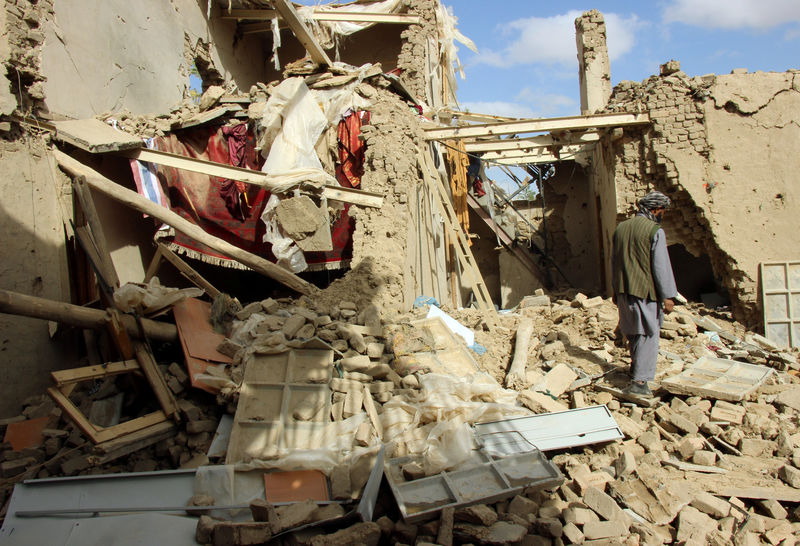By Sardar Razmal
KUNDUZ, Afghanistan (Reuters) - Hundreds of mourners gathered on Friday to bury more than 30 civilians killed in an air strike called in to protect Afghan and U.S. forces during a raid on suspected Taliban militants outside the northern city of Kunduz.
There was an angry mood in Buz Kandahari, the village outside Kunduz where the raid took place in the early hours of Thursday, as white-shrouded bodies, many of small children, were laid out for burial.
"My brother and three of his children were killed. My brother had no connection to any group, he was a labourer," said Mawlawi Haji Allahdad, a resident of the village.
"Did you see which of those infants and children who were killed by the Americans were terrorists?"
"We will avenge our dead against the Americans and the government," he said.
Two Americans and four members of the Afghan special forces were killed during the initial raid, a month after Taliban fighters managed to enter Kunduz, threatening a repeat of their success a year earlier when they briefly captured the city.
The fighting underlined how precarious the security situation around Kunduz remains. Although the city centre was eventually secured last month, the Taliban control much of the surrounding district, including the area of Buz Kandahari.
Officials from the NATO-led Resolute Support mission in Kabul have said it takes all reports of civilian deaths seriously and would investigate.
Human rights group Amnesty International called for an inquiry into the incident, saying those killed in the air strike deserved justice. "This cannot be another example of inaction in the face of such loss of life," said Champa Patel, Amnesty International's South Asia Director.
Former Afghan President Hamid Karzai, a trenchant critic of the use of American air power in Afghanistan, condemned the strikes, but otherwise reaction from Afghan political leaders was relatively muted.
Speaking at an event in Kabul, Government Chief Executive Abdullah Abdullah expressed his condolences to the victims and said there would be an investigation into the incident. He said the Taliban used Kunduz residents as human shields.
The use of air strikes in civilian areas came under heavy criticism last year after 42 people were killed in a strike against a hospital operated by aid group Medecins sans Frontieres in Kunduz.
According to figures from the United Nations, there was a 72 percent increase in civilian casualties caused by air strikes in the period from January to September, with 133 deaths and 159 injured. One third were caused by international forces.

However, Afghan military officials see U.S. air power as a vital support in the fight against the Taliban while the country's own nascent air force is still being built, and the number of air strikes has spiked sharply this year.